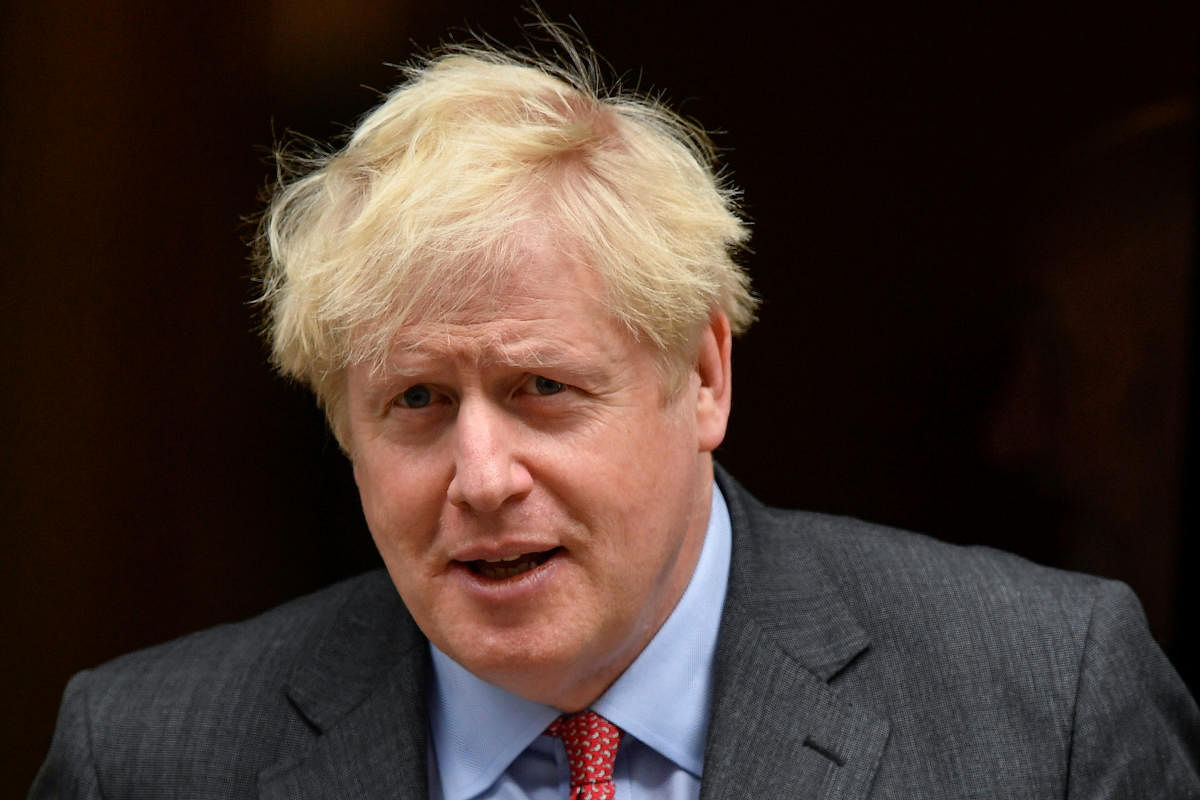
The British government on Monday faced potential defeat in parliament over controversial legislation that would allow it to override parts of the country's EU divorce treaty.
Members of the unelected upper chamber House of Lords were tipped to vote against the Internal Market Bill, which is designed to regulate trade between all four UK nations.
The government insists it is a safety net in case talks for a new trade agreement fail, even though it admits it breaks international law in a "very specific and limited way".
But the Lords want to take out clauses relating to Northern Ireland, which will have the UK's only land border with the EU from January 1 and will remain under some of the bloc's rules.
A "no-deal" could complicate the situation on the island of Ireland, and its politically-sensitive border between UK-ruled Northern Ireland and EU member Ireland.
Brussels has already initiated legal action over the draft law.
Top Democrats in the United States, including President-elect Joe Biden, have waded in, warning a US-UK trade deal could be compromised if a "no-deal" jeopardises a hard-won peace.
An open border was a keystone of the US-brokered 1998 Good Friday Agreement that largely ended more than 30 years of violence over British rule in Northern Ireland.
Irish Foreign Minister Simon Coveney said Monday that the election of Biden, who has Irish roots, could lead London to "pause for thought" and ensure Irish issues are prioritised.
The vote is expected Monday evening. Defeat would mean MPs in the lower House of Commons, where Prime Minister Boris Johnson's Conservatives have a majority, getting another say.
Ministers could reinsert the controversial clauses, although they could leave them out if a deal is struck by then.
The debate and vote comes as London and Brussels met again to thrash out a post-Brexit trade deal.
EU chief negotiator Michel Barnier arrived in the British capital late Sunday before another week of talks with his UK counterpart David Frost, as they scramble to find an agreement.
Britain formally left the bloc in January but remains bound by most of its rules until the end of the year under the terms of its divorce.
Parliaments in London and Brussels need time to ratify any deal struck, leaving scant time for the two sides to find a compromise on key outstanding issues.
These include establishing rules for competition between British and European companies, oversight mechanism and fishing rights.
Barnier said on Twitter the keys to unlocking the door to a deal were "respect of EU autonomy and UK sovereignty" alongside "robust guarantees of free and fair trade" and "stable and reciprocal access to markets and fishing opportunities".
On Saturday, Johnson and European Commission chief Ursula von der Leyen acknowledged big differences must be bridged after two weeks of "intense" meetings ended last Wednesday.
Von der Leyen vowed both negotiating teams would "continue working hard" while Johnson said they would "redouble efforts to reach a deal".
However, neither side has indicated yet that they are willing to make the compromises needed for a breakthrough, with the clock ticking on an expected mid-November deadline.
Britons voted to end decades of EU economic and political integration in 2016 but implementing Brexit has proved immensely difficult ever since.
Initial divorce terms were finally agreed last year, triggering negotiations over a future free trade deal to be in place in time for the new year.
But the coronavirus pandemic strained the already ambitious timetable, while the most divisive issues have stalled the talks for months.
Without a deal, Britain would leave the EU single market and customs union on January 1, triggering immediate and significant barriers to cross-Channel trade and business.
London and Brussels still insist they would prefer to avoid the economic disruption that this would entail.